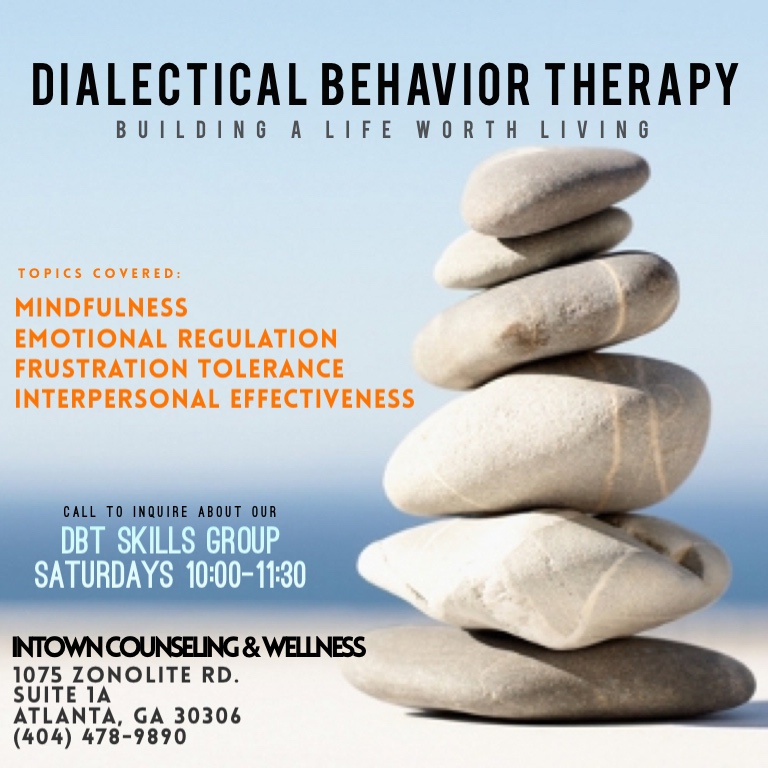
CORE COMPONENTS OF A DIALECTIC FULL
People with pervasive emotion dysregulation often have histories full of others invalidating their wants, needs, thoughts, and feelings. Mindfulness can also be effective in helping us make the best decisions. This is one way mindfulness can help avert an emotional downward spiral. You may now even find it to be a calming, soothing activity. By fully engaging in the task, repeatedly turning the mind to it, there is little room for negative attributions. Describing the smell of the new fabric as it reaches your nose in waves. The moment you notice a judgment, your turn your mind to folding the clothes, aware of the sensation of the fabric against your fingertips. Because being in a bad mood for most of the day, more days than not, is very unpleasant, you start having judgments about your mood, thinking, “I can’t take this anymore.” So what started out as a relatively insignificant thing has caused a lot of suffering.Ī mindful approach to this dilemma would be to approach the unpleasant task in the spirit of acceptance, willing to engage in it without engaging in a lot of judgments about it. Now instead of tolerating 30 minutes of an unpleasant chore, you spend the whole day in a foul mood, judging all aspects of your job negatively, feeling worse every minute.

What’s worse, these emotions have a way of coloring the rest of your day. “This is terrible.” “What a waste of time.” “This is stupid.” “This job is awful.” Rather than spending the time focusing on folding the clothes, your mind is busy telling all kinds of disturbing stories about this task, and will likely trigger emotions such as anger, resentment, even despair. You may find that as you fold clothes, your mind starts to make all kinds of negative judgments about folding clothes. Now, you may only have to fold clothes for about 30 minutes of a six-hour shift, which is really just a small portion of the job. What you don’t like however, is folding clothes. You like clothes, and you like interacting with people, so it seems like a good fit. Let’s say it’s working at a clothing store. For example, you may have a job that you are reasonable happy in. Often people get emotionally dysregulated by seemingly insignificant or trivial events, not because of the events themselves, but by the judgments people have about the events. How Does Mindfulness fit into DBT and CBT?ĭialectical Behavior Therapy is a treatment that targets emotion dysregulation. Most of us get so conditioned to engaging with our thoughts rather than with reality, it is very easy for us to lose sight of what is actually happening to us, and consequently, how best to handle what is happening to us. We usually tune out our actual experience, and get distracted by thoughts about our experience. It sounds simple, but most people spend a very small portion of their day mindfully engaged in their lives. By practicing non-judgmental present-focused awareness, you are able to attend to thoughts, feelings, and behaviors without engaging in the self-invalidation responsible for persistent emotion dysregulation. DBT mindfulness adds another dimension to the traditional practice of mindfulness: mindfulness without judgment. Put another way, mindfulness is the technique of recognizing when the mind is caught up in a thought and drawing it back to the present experience. In a nutshell, the term mindfulness refers to the practice of bringing ones mind to the present moment. Despite this central position of DBT mindfulness among DBT skills, its function to reduce emotional sensitivity and regulate emotions is often misuderstood.

This is because all of the other emotion regulation skills in DBT hinge on being able to practice DBT mindfulness. DBT mindfulness is taught and reviewed throughout the treatment, and mindfulness begins each skills training session. In Dialectical Behavior Therapy (DBT), mindfulness skills are considered the core component of improved emotion regulation. There is a great deal of research into mindfulness meditation and its benefits.


 0 kommentar(er)
0 kommentar(er)
